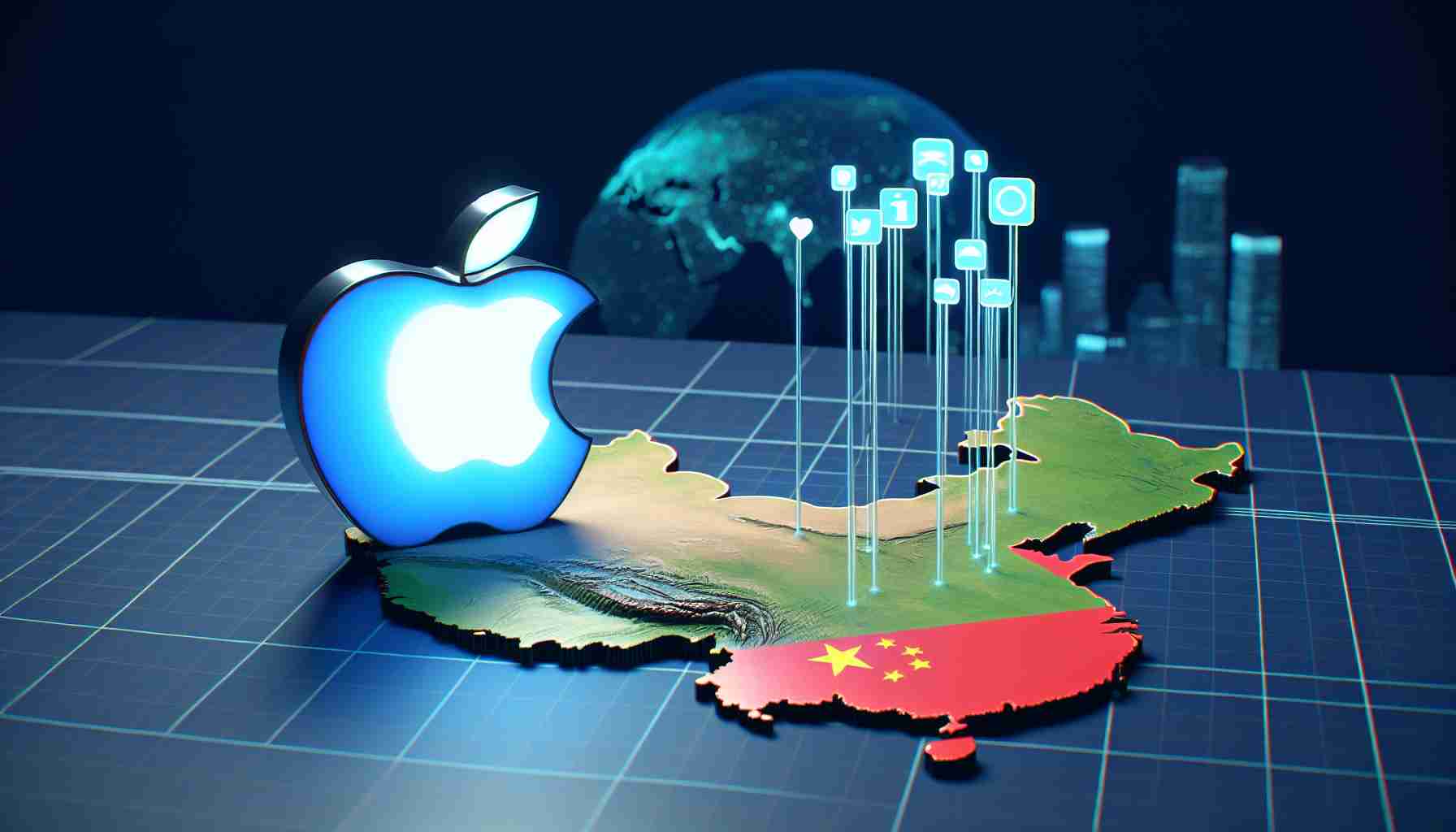Apple Inc. has recently withdrawn two prominent social networking services from its App Store in China following government orders. China’s main internet regulator, the Cyberspace Administration, cited national security as the reason behind the directive, which led to the removal of the widely-used WhatsApp and Threads apps.
In a firm expression of their policy, Apple reiterated its practice of abiding by legal requirements in every country it services, a stance necessitated by China’s large share in Apple’s global market, especially for iPhone sales. The disappearance of these apps coincides with China’s broader campaign to exert greater control over the digital sphere by enforcing app developer registration with the authorities.
This turn of events essentially boosts the presence of China’s local social media giants like WeChat, which is backed by Tencent Holdings. It’s anticipated that local app companies will continue to realign their operations to stay in sync with China’s tight regulatory environment.
Simultaneously, the United States is experiencing a regulatory quandary of its own, particularly concerning the Chinese-owned entertainment app TikTok. The US echoes concerns similar to those of China regarding national security, highlighting a trend of governing bodies increasing scrutiny over technology platforms with international ties.
While the regulatory landscape in the US contrasts with that of China, notable tension persists between the two countries over technology-related issues involving trade and security policies. Up to this point, Meta Platforms, which owns WhatsApp and Threads, has not publicly commented on the app removals. Apple has communicated through various news outlets that while they might not always agree with such statutes, they must comply with local laws where their business operates.
Key Questions and Answers:
Why were the social apps removed from the Apple Store in China?
The apps were removed due to a directive from China’s main internet regulator, the Cyberspace Administration, citing national security concerns.
How does China’s regulatory environment affect local and foreign tech companies?
China’s stringent regulatory environment requires app developers to register with the authorities, adhere to strict data control, and comply with censorship, significantly impacting how both local and foreign tech companies operate in the market.
What has been Apple’s response to the removal request?
Apple has stated that it complies with legal requirements in every country it operates in and has removed the apps in accordance with China’s laws.
How does this situation contrast with the US’s stance on TikTok?
While the US is also scrutinizing foreign apps like TikTok for national security reasons, the regulatory approach differs from China’s, with the US advocating for a more open internet landscape.
Challenges and Controversies:
One of the key challenges is balancing the tightrope between adhering to a country’s laws and protecting freedom of expression and privacy. For companies like Apple, non-compliance could mean facing fines, bans, or other serious consequences in key markets. This has proved controversial as it raises questions about the role of international companies in supporting or resisting authoritarian practices.
Controversy also stems from the fact that such app removals limit the choice of consumers and curb global communication, favoring domestic apps that may have closer ties to the government and more willingness to censor content and share user data with authorities.
Advantages and Disadvantages:
Advantages:
For the Chinese government, the removal of foreign apps reinforces their control over the digital landscape. This helps them manage content and maintain the so-called “Great Firewall of China.” Local companies like WeChat also benefit from reduced competition, which can lead to greater market share and revenue.
Disadvantages:
For businesses like Apple, these policies can dampen the spirit of innovation and reduce consumer choice. Adhering to such removal requests can also tarnish their global image and expose them to criticism regarding free speech and human rights. Users lose access to global platforms, which limits information exchange and can contribute to a more isolated online community.
Suggested Related Links:
– Apple
– WeChat
Apple has not provided comments beyond their prepared statements to the press. While these situations are not directly related to national policies on telecommunications, they demonstrate how technology companies like Apple navigate complex international waters where differing views on security and freedom collide.
The source of the article is from the blog trebujena.net
